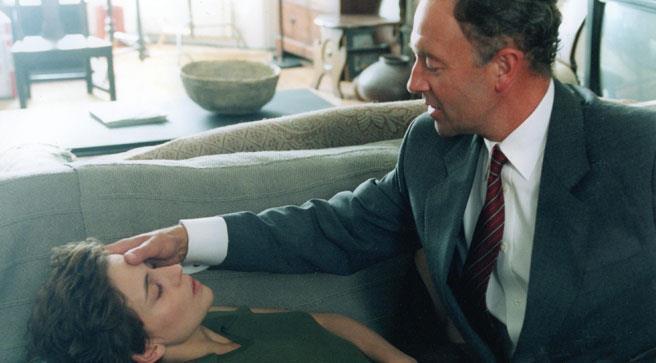In the fog-choked alleys of 1996 television, “Wilderness” emerged—a three-part ITV miniseries that sank its teeth into the jugular of conventional horror. Penned by the venerable Andrew Davies, this tale introduces us to Alice White, a demure librarian with a penchant for cardigans and cataloging. But when the moon ascends and the calendar flips, Alice trades her Dewey Decimal System for a feral descent into lupine lunacy. Portrayed by the enigmatic Amanda Ooms, Alice’s metamorphosis is less about lycanthropy and more a raw, unshackled exploration of primal femininity. It’s as if the Brontë sisters dropped acid and penned a werewolf saga.
Unleashing the Beast: The Sensual Transformation in “Wilderness”
The narrative gnashes through themes of sexual trauma and liberation, with Alice’s monthly transformations serving as a visceral allegory for the tumultuous tides of womanhood. Her psychiatrist lover, played by Michael Kitchen, is ensnared in a Freudian quagmire, attempting to decode the enigma of a woman who literally embodies the “animalistic” side of desire. As Alice retreats to the Scottish highlands, the line between humanity and beast blurs, challenging societal norms and the viewer’s own primal instincts. “Wilderness” doesn’t just push boundaries; it mauls them, leaving behind a trail of provocative questions and the faint scent of wolf’s bane.

